Good policy advice depends on skilled policy practitioners – able to analyse and respond to policy challenges and come up with workable solutions that will add value to the lives of people in New Zealand.
The Policy Skills Framework (summarised in the diagram below) sets out the full extent of the knowledge, applied skills, practices and behaviours needed by great policy practitioners – from new professionals developing their policy craft to seasoned experts at the top of their game. The Framework is designed to help policy practitioners assess and strengthen their own skills profile, and to help policy managers assess and build high performing teams.
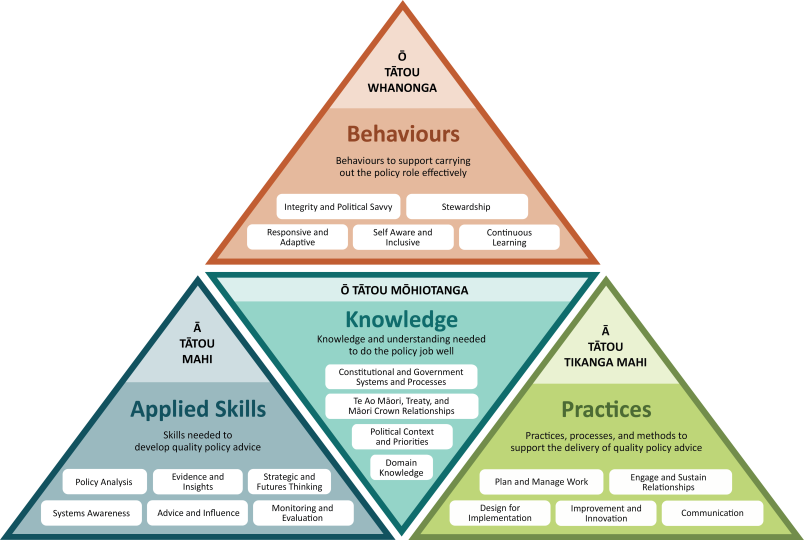
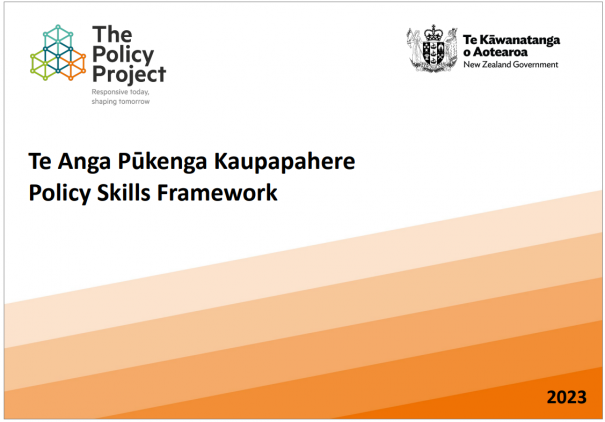
This publication sets out the Policy Skills Framework and provides short descriptors of each of the 20 elements. This product is designed to be used alongside the mapping tools in the section below. It allows for varying levels of experience and competence in each element (the Developing, Practising, and Leading levels). Not only does the Framework provide detailed descriptors of what a policy practitioner should be capable of at each competency level, it also links directly to the Development Pathways Tool which contains actions for building your policy skills at each of those levels.
This refreshed version of the Policy Skills Framework was developed with the policy community and published in 2023. It reflects changes in evolving expectations of New Zealand policy advisors since 2016. It strengthens the capabilities relevant to policy practitioners carrying out their role in Aotearoa New Zealand now and into the future.
The Policy Skills Framework is one of three frameworks co-designed with the policy community to help government agencies improve their policy quality and capability. The other two frameworks are the Policy Quality Framework – outlining what quality policy advice means and the Policy Capability Framework – outlining what government agencies with policy functions need to focus on to produce quality policy advice. All three frameworks have been endorsed by the Head of the Policy Profession and the Tier 2 Policy Leaders’ Network.
Tools and applications
Map your policy skills profile with the Policy Skills Framework
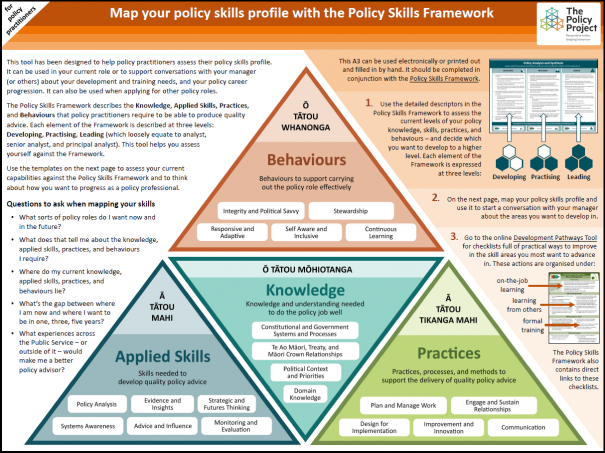
If you’re a policy advisor you can use this tool to help you map your current policy skills – identifying which competency level you are currently at, for each element of the Policy Skills Framework. This tool will also help you identify some of the skills you’d like to develop to a greater depth.
Map your team’s policy skills profile with the Policy Skills Framework
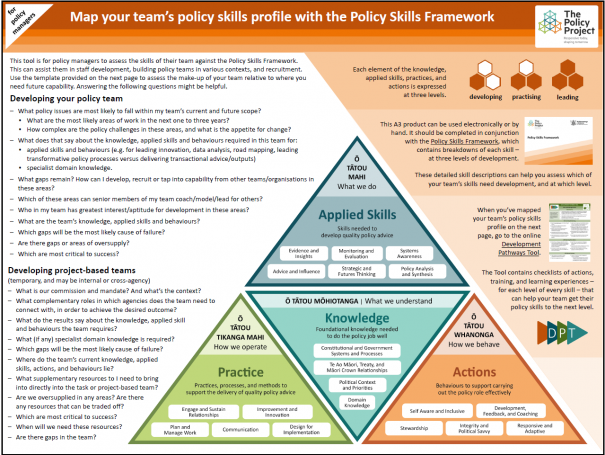
If you’re a policy manager, you can use this tool to map your team’s skills – identifying the mix of levels of competency available to you in each skill area. Comparing this with the skill demands of your work programme can then help you identify how fit for purpose your policy team is, and any skill gaps. This helps you tackle skill gaps by identifying which skills you’d like your team to develop further, and by identifying which skills to look for when recruiting or sourcing short-term help.
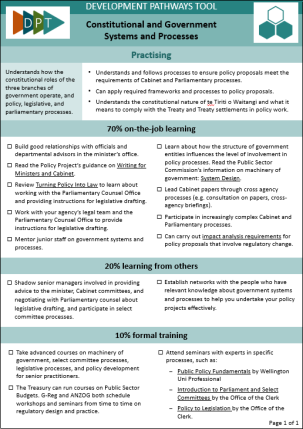
The Policy Skills Framework describes what knowledge, applied skills, behaviours and practices policy practitioners need, while the Development Pathways Tool shows how you can develop the skills you've identified. The Tool identifies the actions you can take to develop each of the skills at three levels of practice: Developing, Practising, and Leading. The actions are organised under three ways of learning – on the job experience, learning from others, and formal training. You can use the Development Pathways Tool in conjunction with the Policy Skills Framework to enrich your individual development discussions. They can help you focus on which skills to develop, to which level, and how best to build your skills.
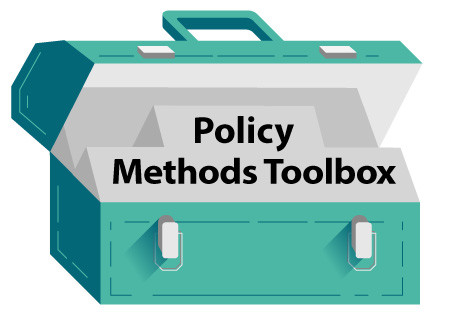
The Toolbox provides information and tools to learn more about methods you can use to help improve specific skills. For example, if you’re interested in improving your engagement and collaboration skills, there’s a section in the toolbox about community engagement methods. Or if you are interested in improving your analysis skills, the section on behavioural insights is worth checking out.
